Discover the Best Hair Loss Treatment in Bangalore: Regain Your Confidence Today!
Are you struggling with hair loss in Bangalore and searching for the best solution to restore your lush locks? Look no further! At IDHA Clinic, we offer the finest/best hair loss treatments in Bangalore, tailored to your unique needs. Our expert team of dermatologists and hair specialists at IDHA Clinic is dedicated to helping you regain your confidence and achieve the hair you’ve always dreamed of.
The best hair loss treatment in Bangalore, or anywhere else, depends on the underlying cause of your hair loss, your individual needs, and your budget. It’s essential to consult a qualified dermatologist or hair specialist in Bangalore who can assess your specific condition and recommend the most appropriate treatment for you. Here are some common hair loss treatments that may be available in Bangalore:
Hair loss treatments that may be available in Bangalore
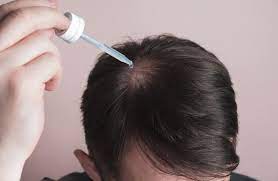
Minoxidil: This over-the-counter topical medication can promote hair growth in both men and women.
Finasteride: A prescription medication for men, it can help reduce hair loss and promote regrowth.
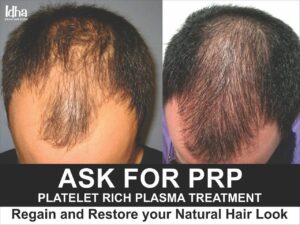
Platelet-Rich Plasma (PRP) Therapy:
PRP therapy involves using your blood's plasma, rich in growth factors, to stimulate hair follicles.
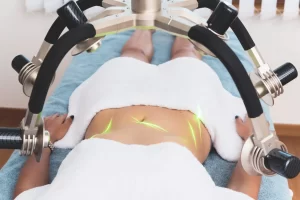
Low-Level Laser Therapy (LLLT)
LLLT devices use low-level lasers to stimulate hair follicles and promote regrowth.
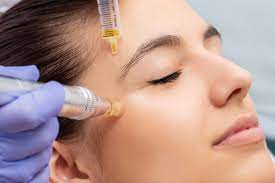
Mesotherapy
A non-invasive treatment that involves injecting a cocktail of vitamins, minerals, and medications into the scalp to stimulate hair growth.

Diet and Lifestyle Changes
Sometimes, hair loss is a result of nutritional deficiencies or lifestyle factors. Your specialist may recommend dietary changes, stress management, or supplements.
Why Choose Idha Clinic for Best Hair Loss Treatment in Bangalore?
Experienced Specialists: Our clinic is staffed by experienced and board-certified dermatologists and hair specialists who have a deep understanding of hair loss and its various causes.
Personalized Treatment Plans: We believe in a one-size-does-not-fit-all approach. Your journey to hair restoration begins with a thorough evaluation of your condition, enabling us to create a personalized treatment plan just for you.
Cutting-Edge Technology: We invest in the latest technologies and techniques for hair restoration, ensuring that you receive the most advanced treatments available in Bangalore.
Proven Results: Our treatments have delivered remarkable results for countless clients who have experienced hair loss due to various reasons, including male and female pattern baldness, stress, or medical conditions.
Understanding Hair Loss - Best Hair Loss Treatment In Bangalore
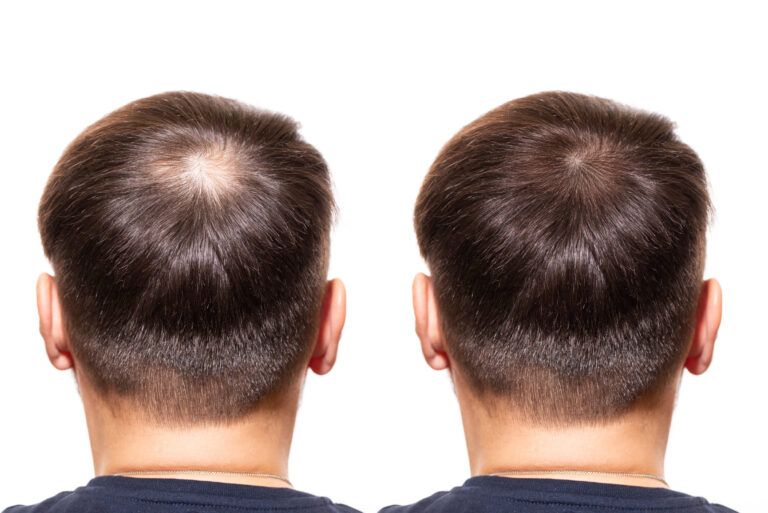
Hair loss is a prevalent concern among many individuals, and it can be overwhelming to manage with home remedies or endless product options. However, there are specialized hair clinics with experienced trichologists who can provide tailored solutions suited to your specific hair loss needs. Our clinic offers personalized treatments that promote hair regrowth, and as such, we are widely recognized as a leading hair clinic – best hair loss treatmet in bangalore. Selecting a reputable hair doctor and clinic is crucial for effective treatment. Therefore, we encourage you to visit our clinic and allow us to help you find the most suitable approach to addressing your hair loss concerns.
Causes Of Hair Loss - Best Hair Loss Treatment In Bangalore
Hair loss can result from various factors, such as individual genetic makeup, the environment, diet, and more. Numerous factors contribute to hair loss, including but not limited to, genetic predisposition, certain medical conditions, and unhealthy lifestyle habits. If you are experiencing hair loss, it is important to identify the underlying cause to determine the most effective treatment options available. You can refer to reputable sources such as the IDHA CLINIC to explore potential causes and treatment options. It is essential to seek professional advice from a healthcare practitioner as hair loss can have a significant impact on one’s quality of life.
Hair loss is a common problem faced by many individuals, and it can be caused by a variety of factors.
One of the most prevalent causes of hair loss is heredity, which tends to occur more frequently as an individual ages. However, it is important to note that genetics are not the only determining factor.
Hormonal changes can also play a significant role in hair loss, such as during pregnancy, childbirth, menopause or due to thyroid problems.
Stress is another contributing factor to hair loss, which usually occurs after an individual experiences a traumatic or emotionally taxing event. Additionally, excessive hairstyling, as well as certain hairstyles, can also lead to hair loss.
It is vital to understand the various causes of hair loss to determine the best course of action for prevention and treatment.
Consider seeking advice from a medical professional or trichologist to address hair loss concerns effectively.
Types Of Hair Fall In Men - Best Hair Loss Treatment In Bangalore
Androgenetic Alopecia (Male Pattern Baldness): This is the most common type of hair loss in men. It is hereditary and typically follows a predictable pattern of receding hairline and thinning on the crown. It is influenced by genetics and hormones.
Telogen Effluvium: This is a temporary form of hair loss that occurs due to significant physical or emotional stress, illness, medication, or dietary changes. It leads to a widespread shedding of hair, but it is usually reversible.
Alopecia Areata: Alopecia areata is an autoimmune disorder that causes the body’s immune system to attack hair follicles, leading to patchy hair loss. It can occur in small, round areas on the scalp or even affect other body hair.
Traction Alopecia: Traction alopecia is caused by constant pulling or tension on the hair, typically due to hairstyles that involve tight ponytails, braids, or extensions. Over time, this tension can damage the hair follicles and lead to hair loss.
Scarring Alopecia: Scarring alopecia is characterized by the destruction of hair follicles and their replacement with scar tissue. It can result from various conditions, including fungal infections, autoimmune disorders, or burns.
Anagen Effluvium: Anagen effluvium is the result of damage to the hair follicles during the growth (anagen) phase, often caused by radiation therapy, chemotherapy, or exposure to certain toxins.
Nutritional Deficiency-Related Hair Loss: A poor diet lacking essential nutrients, such as iron, biotin, or protein, can lead to hair loss. This type of hair loss can be addressed by improving nutrition.
Hormonal Imbalances: Fluctuations in hormone levels, such as those seen in thyroid disorders or hormonal disorders, can contribute to hair loss in men.
Medication-Induced Hair Loss: Some medications, including certain antidepressants, blood thinners, and steroids, may have hair loss as a side effect.
Stress-Related Hair Loss: High levels of stress can lead to hair loss. It may be acute (telogen effluvium) or chronic (trichotillomania, a compulsive hair-pulling disorder).
Types Of Hair Fall In Women - Best Hair Loss Treatment In Bangalore
Androgenetic Alopecia (Female Pattern Baldness): Similar to male pattern baldness, this is the most common type of hair loss in women. It typically results in diffuse thinning across the crown and frontal scalp, but the hairline remains intact. Genetics and hormones play a significant role.
Telogen Effluvium: This temporary form of hair loss can occur in women due to significant physical or emotional stress, illness, childbirth, medication, or dietary changes. It leads to widespread hair shedding but is usually reversible.
Alopecia Areata: This autoimmune disorder can cause patchy hair loss in women. Like in men, it results from the immune system attacking the hair follicles, leading to hair loss in specific areas.
Traction Alopecia: Women who wear tight hairstyles like ponytails, braids, or extensions may experience hair loss due to constant pulling and tension on the hair follicles.
Scarring Alopecia: Scarring alopecia involves the destruction of hair follicles and their replacement with scar tissue. Various conditions, including fungal infections, autoimmune disorders, and burns, can lead to this type of hair loss.
Anagen Effluvium: Women may experience anagen effluvium, which is the result of damage to hair follicles during the growth (anagen) phase, often due to chemotherapy or radiation therapy.
Nutritional Deficiency-Related Hair Loss: A poor diet lacking essential nutrients can contribute to hair loss in women. Nutritional deficiencies, such as iron, biotin, and protein, can be factors.
Hormonal Imbalances: Fluctuations in hormone levels, such as those associated with thyroid disorders, polycystic ovary syndrome (PCOS), or menopause, can lead to hair loss in women.
Medication-Induced Hair Loss: Certain medications, including some birth control pills, antidepressants, blood thinners, and steroids, may cause hair loss in women as a side effect.
Stress-Related Hair Loss: High levels of stress can lead to hair loss in women, similar to telogen effluvium or trichotillomania (compulsive hair-pulling disorder).
Menopausal Hair Loss: Hormonal changes during menopause can lead to thinning and changes in the texture of a woman’s hair.
Postpartum Hair Loss: Many women experience temporary hair shedding after giving birth due to hormonal changes, known as telogen effluvium.


